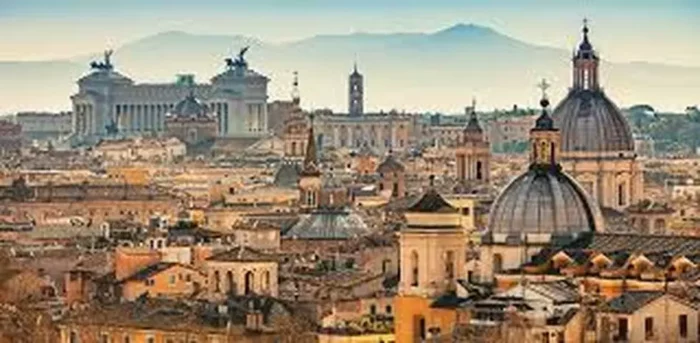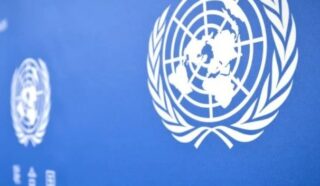As a result of the theological consultations in Berlin on February 2, 2024 and in Rome on April 27, 2024, during which a group of experts and theologians studied the human rights situation in Ukraine, the following conclusions are drawn:
We support Ukraine in its just defensive war and believe that the lawful and justified actions of the special services and state bodies to protect the constitutional order and prevent collaborationism and espionage against specific perpetrators are within the legal framework. At the same time, we cannot share the rhetoric that exploits the thesis of collective responsibility of the entire religious community for the actions of its individual members or clerics.
We advocate that even in the conditions of war with the authoritarian Russian regime, Ukraine should remain committed to democratic values, which include freedom of religion as one of the basic values.
Declaration in the form of a “Nakaz” of the World Russian People’s Council – an organization almost entirely dependent on the Russian Orthodox Church and headed by its patriarch of March 27, 2024
about the nature of the Russian-Ukrainian war as a “holy” war cause a justified protest from European and Ukrainian Orthodox Christians and are an attempt to instrumentalize religious rhetoric to justify the Kremlin’s aggressive foreign policy and the claims of Russian nationalists to the lands of the neighboring state.
Statements and actions by the Russian Orthodox Church, including the seizure of administrative control over dioceses of the Ukrainian Orthodox Church in the occupied territories, lead to growing concern on the part of the Ukrainian state. This has further stalled the already tense and complex situation between the Ukrainian Orthodox Church and the Ukrainian state authorities.
In recent months, there has been an escalation of pressure from state authorities and special services in Ukraine, both at the local and national levels, against clergy and parishioners of the Ukrainian Orthodox Church. Examples of such pressure in recent months include the attack on Bishop Longin (Zhar), criminal cases against Metropolitan Theodosius of Cherkasy, Metropolitan Arseniy of Sviatogorsk, Archpriest Mykola Danilevich and others. The high ecclesiastical status of the defendants in the criminal cases indicates an increase in the level of pressure on the church.
In a number of cases, we can confidently state the repressive nature of criminal cases initiated with the use of questionable evidence. In our opinion, their purpose is to hinder the legitimate human rights public activities of bishops and clerics of the UOC and this can be characterized as a violation of freedom of religion and interference of special services in the activities of a religious organization.
A separate alarming signal is the continuing seizures of churches, as reported by the participants of consultations, who live in Ukraine and carry out internal monitoring of the ongoing processes. They are committed with the connivance of local authorities, using imperfect legislation and often with the use of force.
Orthodox journalists who cover the situation in church-state relations and try to do their job by publishing facts and assessing abuses by the authorities are subjected to various forms of persecution, including criminal prosecution. During the consultation, the silence of the journalistic professional community, which does not respond to cases of persecution of colleagues, was repeatedly noted.
Within the framework of the “Single Telethon”, as well as in Ukrainian Internet publications, there is a systematic campaign to defame the Ukrainian Orthodox Church, which is presented as “pro-Moscow”, “disloyal” or directly inflate the few cases of collaboration and generalize them to the entire church community of many millions. Such campaigns of vilification of the country’s largest religious organization are of acute concern, as they provoke a split in society and give Kremlin propaganda reasons to question the democratic nature of Ukrainian statehood.
Attempts by the State and judicial authorities to present one of the country’s Orthodox communities as a symbol of sovereignty are of particular concern. This is also reflected in the absurd judicial formulations about “the Orthodox Church of Ukraine as one of the symbols of sovereignty”, which contradict the Constitution.
During the Berlin and Rome consultations, the courageous patriotic position of the Ukrainian Orthodox Church represented by its Primate and leadership was noted. The Primate of the Church, Metropolitan Onufry condemned Russia’s actions in the first hours since the full-scale invasion began. The Ukrainian Orthodox Church also condemned the “Edict” of the World Russian People’s Council, which recognized the war as “sacred.”
Priests and laymen of the Ukrainian Orthodox Church are actively volunteering to support the Ukrainian armed forces and refugees. In the military units, a significant part of the servicemen are parishioners of the UOC. Among them are many close relatives of UOC priests. Some priests and monks of the UOC are servicemen or volunteers at the front or in the frontline zone. At the same time, however, the country legally prohibits UOC priests from participating in chaplaincy ministry and providing spiritual care to Orthodox defenders of Ukraine, who are thus discriminated against on religious grounds
To summarize, we appeal to European politicians, non-governmental organizations, religious unions and the ecumenical community to pay attention to the numerous violations of the rights and freedoms of believers of the Ukrainian Orthodox Church and to create a permanent monitoring body under the auspices of the EU in the field of religious freedom in Ukraine.
In turn, the working group of the Rome Consultation will continue its activities in the field of monitoring and reporting on the situation around the Ukrainian Orthodox Church.
St. Maynard’s Foundation and participants in the Rome Consultation




